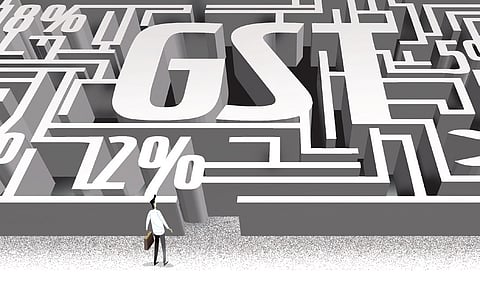

NEW DELHI: The Group of Ministers (GoM) on rate rationalisation in a meeting on Wednesday discussed rates of 85% of the items under GST, even though the talks on health and life insurance premiums remains unresolved. The general consensus of the meeting was that goods and services used by common people should have lower GST rates.
Speaking to TNIE, West Bengal finance minister Chandrima Bhattacharya, who is part of the GoM, said it is decided to cut the rate on education-related materials, including exercise books and pencils, from 12% to 5%. The change is likely to provide relief to families and make educational resources more accessible.
Bhattacharya stated, “We all agreed that the rate on education-related material should be brought down. This is a step towards ensuring that education remains affordable for every child.”
The meeting addressed a proposed raise in rate on apparel priced above Rs 1,000 from 12% to 18%.
She voiced opposition to this proposal, arguing that it would adversely impact common citizens and the textile industry, which employs many women in Bengal. “The rate increase will affect common people and the industry, which employs many women,” she said, reinforcing the state’s position against the hike.
Bhattacharya said the talks on health and life insurance premiums remain unresolved and the issue will be revisited in the next GoM meeting scheduled for October 19, with an additional follow-up on October 20 for remaining items.
Currently, 18% GST is charged on health and life insurance premiums. The GST is structured into 4 tiers, with slabs set at 5%, 12%, 18%, and 28%.
She said collective sentiment of the states, noting, “All states agreed that common people should not suffer due to rate increase. The states were of the view that their revenue should not get affected.”
Other sources confirmed that the Centre wants to bring several items from under 18% to 12%. However, non-BJP-ruled states and some north-eastern states are reluctant as their revenues may suffer.
“There was a discussion to bring air conditioners under 18% from 28%, but many states, mainly Opposition-led states were unwilling,” a source said on condition of anonymity.